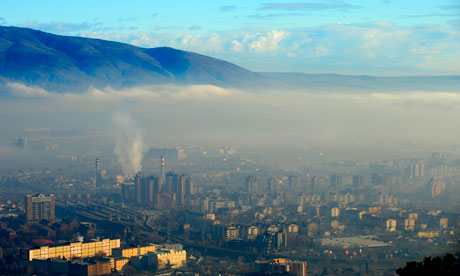
It follows that countries must also introduce fundamental changes in patterns of consumption, technology, and agriculture to ensure a sustainable future for their growing populations.
Such developments have begun in particular regions in countries and then spread outwards, as in Brazil and India.
Two recent examples of the importance of sustainability for economic growth are given below:
1. During last year's massive floods in Thailand, exacerbated by global warming, which disrupted the country's car industry with knock-on effects for international supply chains.
2.In Asia, this year, there have been several examples of severe air pollution in cities spreading over hundreds of kilometres. This disrupted both economic activity and affected the health of millions.
The move towards green growth (is already an immense challenge in our developped countries so "needless to say"?) that in developing countries poses extraordinary challenges for experts and decision makers because of the greater need to address the costs of natural risks and environmental and industrial safety, and large variations and unpredictability in global trade. These challenges are forcing the need in developing countries for speedy but different reforms appropriate to their societies and institutions, although this strategic aspect of development is seldom discussed at meetings of legislators and governments.
REFERENCES:
REFERENCES:
Green economy: Will it ever be people, planet and profit? - Zunia.org
SOURCE: The Guardian_global-development-professionals-network/2013/sep/17/green-economy-development-policy-china









No comments:
Post a Comment
Comments, questions and/or suggestions welcome. If I can be of further, more focused assistance, do not hesitate-ask. Comments are moderated to assist further enquiry and assistance.